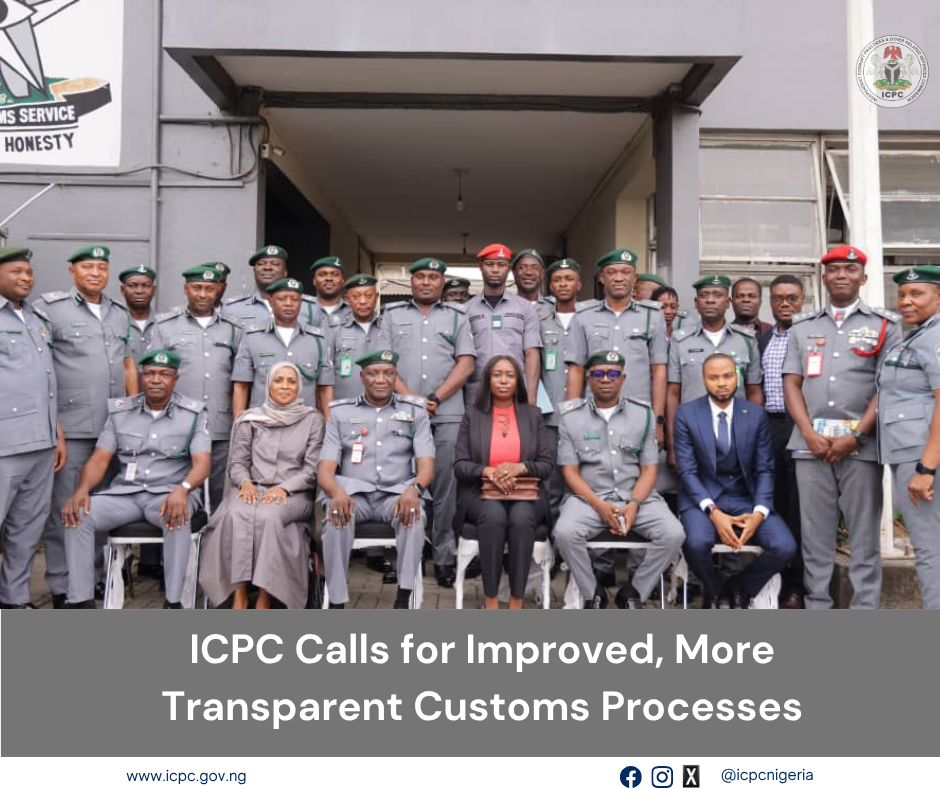The ICPC has called on the Nigeria Customs Service to be more transparent and make its processes more citizen-friendly to reflect the government’s anti-corruption stance..
This statement was made by the ICPC’s Resident Anti-Corruption Commissioner in Lagos State while delivering an opening remark at an event organised by the Nigeria Customs Service, Ikeja. Represented by Chief Superintendent Mary Omonoyan, the Commissioner stated that “Customs enforcement is a vital pillar in national economic development. By ensuring compliance with trade regulations, curbing smuggling, and preventing revenue leakages, the Customs Service plays a strategic role in securing our borders and safeguarding national interests.”
While delivering a paper titled “Nigeria Customs Service: Leveraging Customs Enforcement to Enhance Revenue Generation with Transparency and Accountability” at the event, Principal Superintendent Hadiza Rimi, also of ICPC, re-emphasised the crucial role of enforcement, institutional integrity, and transparent processes in boosting revenue generation within NCS, stressing that the current enforcement practices must align with global best practices in accountability.
She further noted that while enforcement was a key tool for revenue assurance, it must be guided by ethical standards, proactive oversight, and the deployment of both technological and human intelligence mechanisms to block leakages.
In her words: “Customs enforcement should not be merely punitive but must serve as a preventive and corrective tool, reinforcing public trust”.
Highlighting the broader objective of the engagement, she remarked: “With the collaboration of the ICPC, we are not only shaping a more effective Customs Service but building a beacon of integrity, innovation, and service excellence that others can emulate.”
In his remarks, Comptroller Mohammed Shuaib of the Nigeria Customs Service, Ikeja, stated that the initiative to sensitize officers of the service was a commendable one, emphasizing the need for Customs Officers to uphold integrity in the discharge of their duties at all times.
“Our commitment to national revenue growth must be matched with a culture of transparency and accountability. This lecture is a timely reminder that enforcement without ethics will not deliver sustainable results”, he said.
The event concluded with a call for stronger collaboration between anti-graft agencies and the NCS to promote a corruption-free Customs system that supports Nigeria’s economic development goals.


